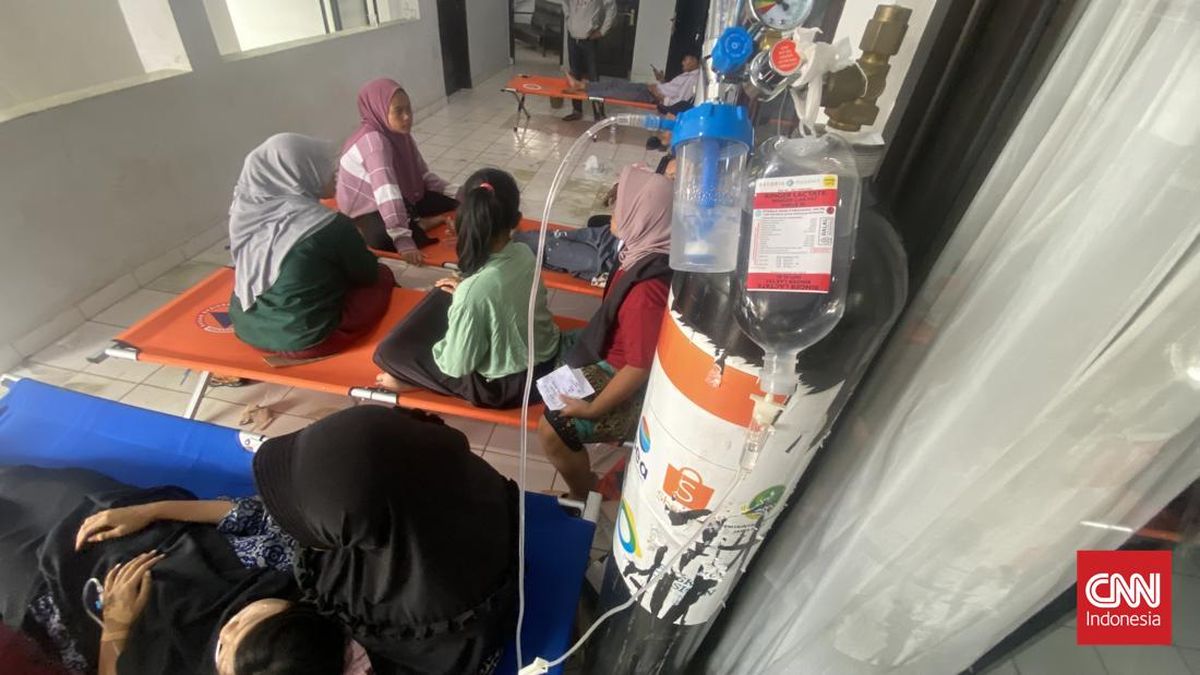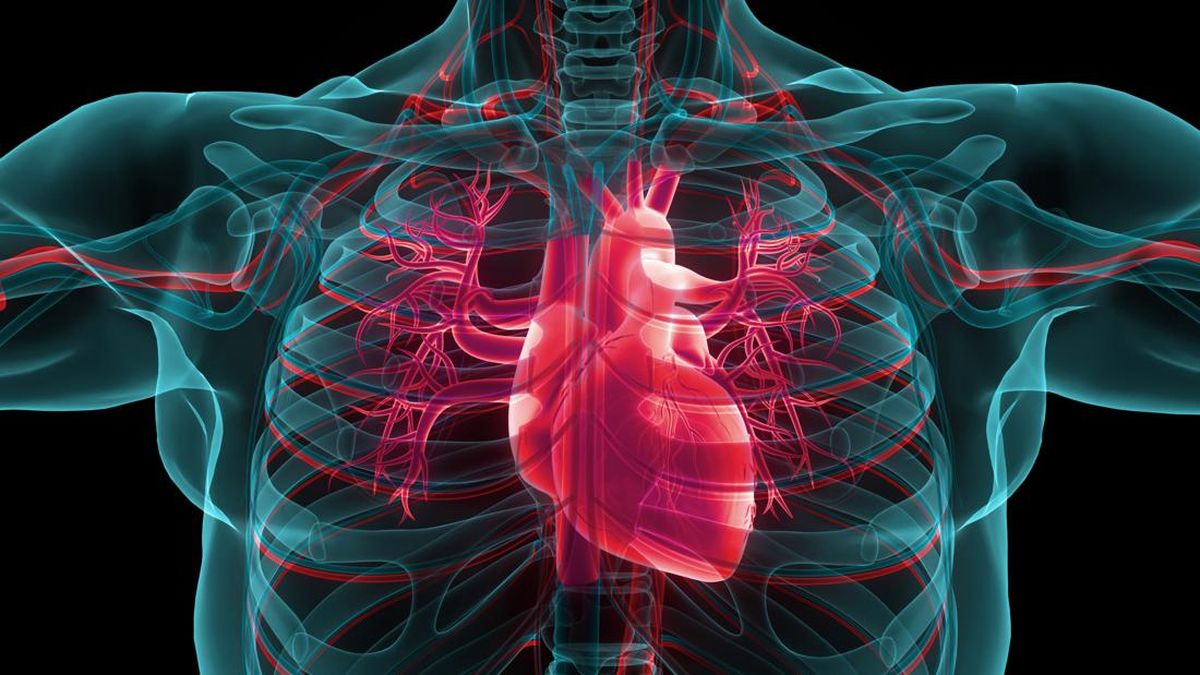Unwanted hair growth, mood swings, acne, weight gain or difficulty losing weight, and irregular or absent periods are all signs that someone is going through puberty.
But for one in eight women globally – for Indigenous Australian women, that increases to one in six – these are only some of the symptoms that follow them well into adulthood, costing them time, money, work, relationships, and their sanity.
They are hallmarks of polycystic ovary syndrome (PCOS), a complex hormonal condition that can mimic other conditions, increase the risk of developing further health problems, including endometrial cancer and diabetes, and delayed diagnosis could hinder their chance to grow their family.

One in eight women worldwide have polycystic ovary syndrome (PCOS), though it’s thought up to 70 per cent remain undiagnosed.Credit: Michael Howard
Much about the endocrine disorder and its broad spectrum of symptoms is a mystery to many health professionals.
Social media is replete with supplement shillers and wellness influencers that erroneously claim to have the cure in the form of vitamin cocktails, “magic drinks” and miracle diets.
This misinformation is “quite distressing” to Professor Helena Teede AM, an endocrinologist and a world-leading PCOS expert.
“We’re seeing miracle diet claims. There is none. Supplements abound, yet unfortunately, there is no evidence that any of them make a clinical difference in PCOS,” says Teede.
“Like many women’s health conditions, there is a plethora of influencers and those who wish to promote their own products for personal or commercial gain.”
As director of the Monash Centre for Health Research and Implementation, Teede led the development of international evidence-based clinical guidelines for PCOS, a condition that is significantly more common than previously thought. The World Health Organisation estimates up to 70 per cent of women with PCOS remain undiagnosed across the globe.
Loading
Teede often sees women left confused and frustrated by delays in diagnosis who have felt unsupported by their medical care. Vulnerable, they turn to social media for advice on how to treat the chronic condition, and find content creators criticising evidence-based treatments.
“People are walking away from effective treatments,” says Teede, for “ineffective substitutes that are expensive and don’t work”.
One reason for a global movement of women moving away from hormonal therapy is the growing evidence of an association with the side effects of hormonal contraception, most commonly low mood, for a minority of women. Their experiences should be taken seriously by healthcare professionals, who can work with them to find evidence-based alternatives.
For those who may feel scared of trying hormone treatment because of what they have seen online, Teede stresses that evidence shows mood improves for people with PCOS when oral combined contraceptive pills are used to treat symptoms.
What’s in a name? A big problem for those with PCOS
“Polycystic ovary syndrome” evokes images of ovaries covered in cysts. But cysts, and even ovaries, aren’t the primary issue when it comes to PCOS, Teede says.
PCOS is a hormonal imbalance that affects multiple hormones and organs. And while the ovaries contribute to this imbalance – the disrupted ovulation cycle triggers excess androgen production, including testosterone – PCOS is a broader endocrine condition.
Loading
The ovarian cysts many associate with PCOS aren’t ovarian cysts at all. They are eggs or follicles that have stopped growing.
It is often mistaken for a gynaecological issue because of its “misleading and confusing” name, and medical students get a total of about two hours of PCOS education, says Teede, who is leading a global initiative to change PCOS’ name.
“Most of our health professionals are behind in terms of their training initially,” says Teede. “Dietitians do not receive education on PCOS and neither do nurses and psychologists and others who need to interact with [PCOS patients]… it’s not just renaming, it’s reclassifying the condition.”
What do we know about the causes of PCOS?
The exact cause of PCOS is a mystery. What we do know is that PCOS is an underlying genetic disease influenced by the hormone environment in the uterus and lifestyle factors beyond birth.
The most up-to-date research suggests the significant increase in PCOS prevalence is linked to the complex interplay of a person’s genetic predisposition with societal shifts towards ultra-processed foods and sedentary habits. Air pollution and chemicals found in cosmetics, cleaning products and pesticides can be endocrine disruptors, which can affect hormones.
There is no ‘miracle diet’ that can heal PCOS
Before the anti-inflammatory diet, there was “proteinmaxxing” and “fibremaxxing” – all trends that, in isolation, appear harmless. How could ensuring you’re getting enough protein or fibre possibly harm you?
These diets are among a bevy of health hacks on TikTok – where #PCOSWeightLoss has more than 232,700 videos under it – and Instagram – where posts under #PCOSdiet advertise the low GI diet, lambast any ingestion of sugar, and swear by 30 grams of protein at breakfast – promise to be the silver bullet that “heals” PCOS. This is where it gets complicated.

Content creators often recommend people with PCOS eat 30 grams of protein for breakfast every day (TikTok was a driving force in Australia’s cottage cheese shortage in 2025). While it’s not harmful advice nutrition-wise, there is no cure for PCOS, and it can’t be managed through diet alone.Credit: TikTok
“One of the first-line approaches to managing PCOS is definitely lifestyle intervention,” says Associate Professor Theresa Larkin of the University of Wollongong’s Graduate School of Medicine.
Weight management can be a problem for people with PCOS. Symptoms of the condition can manifest due to weight gain, and vice versa.
Loading
Most people with PCOS have insulin resistance, which can trigger weight gain. The pancreas tries to alleviate insulin resistance by producing more insulin, which can disrupt ovarian function and increase androgens. So the vicious cycle continues.
Larkin says increasing the protein load at breakfast “[primes] the cells of the pancreas so then they’re not overreacting when there’s glucose coming into the bloodstream later”. Thirty grams of protein is a “good amount”.
“The more protein you eat, especially if that’s in place of extra carbohydrates ... means that overall, we’re getting proportionally less glucose in comparison to protein and even fat coming to the bloodstream,” says Larkin.
“That means a smaller insulin spike.”
In addition to high protein, Larkin says a high-fibre, low-sugar and low-fat diet increases gut bacteria diversity linked to lower inflammation and lower insulin resistance.
But the problem with content creators fixating on diet alone, says Teede, is that it’s “setting people up to fail”.
“This is not a personal behavioural problem. This is not a lack of discipline. This is not individuals failing to have a healthy lifestyle. There is no secret diet, and anyone who sells you one and charges you money is ripping you off.”
A healthy lifestyle, including healthy diet and exercise, is “really critical” for managing PCOS, she says, but it is no cure, and what works for one person may not work for others.
Many patients will need medications, such as metformin, hormonal contraception, or GLP-1 receptor agonists (think Ozempic and Wegovy) to help manage their hormone imbalances. Cosmetic treatments, such as laser hair removal, can also help with excess hair growth and quality of life.
“[Treatment] needs to be individualised so that it’s sustainable for that individual,” says University of Melbourne Professor of Endocrinology Ada Cheung, who is also an endocrinologist. “If someone hates protein, it’s not going to be sustainable to make them eat 30 grams of protein in the morning.”
Beware of berberine and bone broth
What complicates matters further is when beautiful people bury misinformation about “reversing PCOS naturally” within cherry-picked health advice.
One sentence in a YouTube Short, or slide in a TikTok video or Instagram gallery, may laud the benefits of high-protein breakfasts, and the next recommend beauty supplements “that target root causes” as a quick fix.
Loading
If you click on the content creator’s profile, there is often an affiliate link to sites that sell “natural hormone balance drinks” and supplements, which earn the creator a commission when desperate viewers click through, hoping to avoid synthetic hormone treatments such as the combined contraceptive pill.
In a statement, a spokesperson for TikTok says the platform does “not allow harmful health misinformation” and “proactively” removes such content in line with its community guidelines.
“If anyone sees a video or account they believe shouldn’t be on TikTok, they can report it in app,” the spokesperson says.
Of the seven videos about PCOS flagged with TikTok by this masthead, only one has been removed. It’s understood that YouTube does not allow harmful medical misinformation that contradicts the guidance from local health authorities on specific health conditions and substances. Meta (owner of Instagram) did not respond to requests for comment from this masthead.
The Australian Competition & Consumer Commission and the Therapeutic Goods Administration can take legal action against anyone who breaches their advertising codes. For instance, the TGA prohibits paid testimonials and misleading claims for prescription medicines and unregistered goods. But so much of this misleading PCOS content is not explicitly paid advertising, and, frankly, the sheer volume of content makes policing bad actors an impossible task.

Content creators, often with affiliate links to supplement suppliers that will see them make money when a follower clicks on it, recommend vitamins, teas and bone broth to people desperate for a quick fix. Experts say these are largely ineffective.Credit: TikTok
Teede is not against complementary therapies but she takes particular issue with wellness influencers who stand to gain commercially from the supplements they recommend in place of treatments that have credible evidence to support their effectiveness.
“On social media you get this, ‘No, it’s toxic. No, it causes all these problems, take berberine’. So you’re not only saying take something that’s not proven to be effective, but you’re actually saying don’t take something we know works for the majority. Not everybody, but for the majority,” she says.
Cheung says: “The pill is not for everybody, and if people are getting side effects, there are alternatives. It depends on what the individual goals are, but people should keep advocating for themselves and asking their health professional.”
Teede says there is no credible evidence that confirms fan-favourite supplements L-theanine, berberine, and inositol/myo-inositol are effective therapies for PCOS.
‘Wherever anyone is selling you something they make money out of, be wary.’
Professor Helena Teede, endocrinologistCheung agrees: “There is zero evidence that any of those supplements target the root causes. In fact, we don’t know the root causes of PCOS.”
Other common recommendations from content creators to combat PCOS (read: lose weight) include omega-3 fatty acids, bone broth, celery juice, and peppermint and spearmint tea.
While these contain beneficial anti-inflammatory properties, Larkin says your gut microbiota is better off when you get them from food.
Loading
“You’re just not going to be able to ever have enough of them to actually have an effect in terms of weight loss,” says Larkin.
Teede recommends seeking information about PCOS from reputable sources such as Better Health Channel, the PCOS Awareness Association, or the AskPCOS app, (which Teede helped develop, and does not financially benefit from its use).
“Let’s empower people to understand the condition, make decisions that suit their life,” says Teede, “and get the simpler and cheaper treatment earlier.”
Start the day with a summary of the day’s most important and interesting stories, analysis and insights. Sign up for our Morning Edition newsletter.
Most Viewed in Lifestyle
Loading


















































